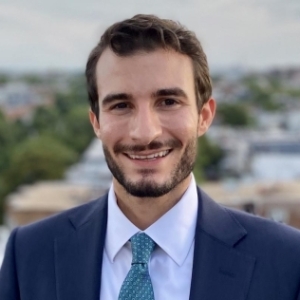Over the last two weeks, lawmakers have continued to work on a number of pressing issues, including funding legislation for the current 2023 federal fiscal year (FY23). Elsewhere the contours of the upcoming 118th Congress– set to convene in January– are continuing to take shape as additional elections are finalized and leadership decisions are made. Meanwhile, the U.S. Department of Education (ED) released new guidance related to STEM education.
 Lawmakers Struggle to Find Agreement on FY23 Funding
Lawmakers Struggle to Find Agreement on FY23 Funding
This week, Congress continued to work on a number of important agenda items lawmakers hope to complete during the current lame duck session of Congress. Topping this list, is the need to fund the federal government and related programs beyond December 16—when current stopgap funding legislation is set to expire. This legislation, known as a continuing resolution (CR), has provided an extension of FY22 funding levels for federal operations and programs, like the Carl D. Perkins Career and Technical Education Act (Perkins V), through this date later this month. Lawmakers are still negotiating topline spending totals for the major components of the federal budget. As a reminder, discretionary spending is split between defense and non-defense funding. Democratic lawmakers broadly favor additional non-defense spending, while Republicans are supportive of larger amounts of funding for the military.
This disagreement— how much to allot for both of these spending categories—has remained one of the primary obstacles for Congress to advance full-year spending legislation needed to avert a government shutdown and lapse in appropriations for programs like Perkins V. As this disagreement persists, lawmakers will likely be forced to pass another short-term extension of existing FY22 funding levels to provide themselves more time to negotiate a final deal. It is unclear whether lawmakers will find consensus on this important issue prior to the start of the next Congress, set to begin on January 3, 2023, but both sides are working earnestly to finalize a deal prior to the holidays.
As these efforts continue, Advance CTE will continue to engage with partners on Capitol Hill to impress upon lawmakers the importance of full-year funding and to encourage greater investments in Perkins V and funding streams of interest to the Career Technical Education (CTE) community in the coming year.
Democrats Solidify New Senate Majority
As shared previously, the long-awaited midterm elections took place last month which resulted in Republicans retaking control of the House. While nearly all of these electoral races had been resolved, a final Senate runoff election in Georgia between Sen. Raphael Warnock (D-GA) and challenger Herschel Walker took place. After the polls closed Tuesday evening, Sen. Warnock (D-GA) was declared the winner of this election. With Sen. Warnock’s electoral victory, Democrats will have a 51-49 majority in the Senate as part of the upcoming 118th Congress. This majority will further solidify Democrats’ control of legislative and nomination processes which, over the last two years, had relied on Vice President Kamala Harris to cast tie-breaking votes when the chamber deadlocked.
Significantly, this slim Democratic majority in the 118th Congress will also mean Democrats will have majorities on individual Senate committees, including the Health, Education, Labor, and Pensions (HELP) Committee which oversees CTE policy, in the coming Congress. With these majorities on committees, Democrats will be able to move nominees and certain legislation that had previously been bogged down by disagreements between the parties over the last two years. Despite these positive developments for Democrats Sen. Kyrsten Sinema, an incumbent Democratic Senator from Arizona, announced that she is leaving the Democratic Party to become an independent. Although this complicates Democrats’ newfound Senate majority somewhat, Sinema shared in an interview today that she will not caucus with Republicans which means Democrats are still likely to have a firmer grip on the Senate in the coming two years.
House Republican Leadership Continues to Take Shape
Elsewhere incoming House Republican leaders are continuing to make decisions regarding who will lead committees of jurisdiction in the coming Congress, including those that will oversee CTE policy next year. Of note, Rep. Virginia Foxx (R-NC) was granted a waiver by House Republican leadership recently to run to lead the House Education and Labor Committee next Congress. This waiver will allow Foxx to run for chair, but she is likely to be challenged by one or more other Republican members vying for the position. Advance CTE will continue to monitor this and other developments as the 118th Congress continues to take shape.
ED Issues New STEM Guidance
On Wednesday, December 6, the U.S. Department of Education (ED) sent a Dear Colleague letter to state educational agencies, local educational agencies, and other stakeholders providing information on how existing federal funds can be used to support science, technology, engineering, and mathematics (STEM) education. The letter aims to provide guidance on using funds from the American Rescue Plan (ARP), as well as other relevant funding streams and legislation, such as Perkins V, to support innovative, equity-focused K-12 STEM education and related activities. It also provides suggested examples and best practices for how to maximize the use of these resources. The letter goes on to emphasize the importance of STEM education in helping students recover from the COVID-19 pandemic and prepare them for a rapidly evolving labor market.

